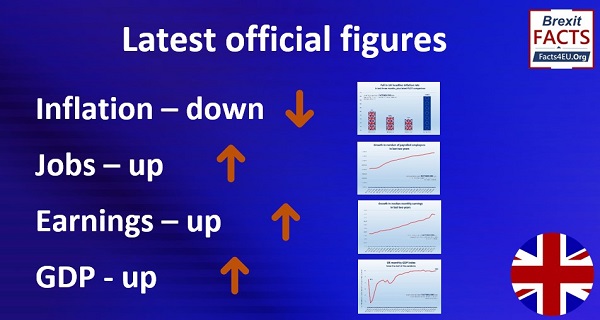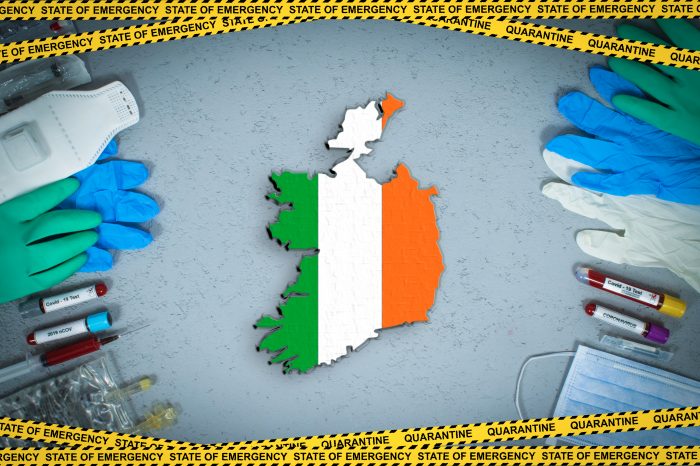Robbing UK Peter to pay, bribe or subsidise EU Paul
“From each according to his ability, to each according to his needs!’” Karl Marx
Could this idealist and unworkable Marxist mantra summarise the behaviour of the European Union (EU)? If so, what then are the implications for the UK and its citizens?
Both the EU and the UK place an emphasis upon the redistribution of existing material wealth, and thus render difficult the creation of new wealth per capita.
Rather than concentrate on the harder task of making the future cake bigger for everyone, the existing smaller cake is instead being divided up by both the EU and UK, into arbitrary and questionable portions. Sometimes this is done disingenuously or just deceptively. This redistribution undermines our ability to make the cake bigger; resources or funding are not available where they could help create future wealth. Unfortunately, new per capita wealth creation is already difficult to achieve – either in the EU and the UK. Spending power and productivity have shown little improvement for years, whilst youth unemployment has worsened.
This wealth redistribution exacerbates existing problems. For example:-
- The wealth-creating part of the economy is heavily taxed to fund government and EU largesse and bureaucracy of poor and unproductive economic value, such as uncontrolled foreign aid and EU grants. Both subsidise corruption, create waste and encourage countries to live beyond their means.
- Poorer countries are losing their brightest and best skilled citizens. They are over-charged for products and services thereby helping to fill the public (government) coffers of richer countries both within the EU and elsewhere;
- These payments bribe developing countries to reduce necessary tariffs that protect the local young businesses which then fail – to the gain of the EU and the loss to that country.
- Public debts are piled on future generations; higher prices are paid by consumers to monopolies or EU and government-sponsored overpricing (such as with energy);
- Corporatism (crony capitalism of large organisations) gains at the loss of smaller or more innovative enterprises;
- Interest rates are maintained at an artificially low rate and thus penalising savers whilst enabling borrowers (including governments) to borrow and spend more extravagantly;
- Large organisations are providing rich pickings for underperforming senior executives. These activities could be described as larceny or looting on a grand scale – the so-called Gravy Train. Why not jump on board if you are from a tradition of corruption or of using privileged positions of monopoly or authority (in government) to loot others?
Redistribution of existing wealth in this immoral and unprincipled way is inherently incompatible with the sanctity and protection of ownership rights and foreign aid which seeks overtly to assist in the creation of individual wealth and property.
This is all a slippery slope; without the moral or ideological imperative to minimise such redistribution of wealth, it can grow with little restraint, as with the EU Commission’s budget even during times of recession and hardship. Any existing ownership rights of value are eroded with the result that other forms of national or individual wealth (generally anything present that improves the quality of life) and property are then unprotected and potentially ‘up for grabs’ or of being attacked and reduced in value.
In this manner, there can be a destruction of: traditional individual freedoms (including freedom of the person, the freedoms of Magna Carta and freedom from fear of unreasonable and unknown persecution). That is exemplified in the European Arrest Warrant as well as in the extradition treaty between the UK and the USA.
All the foundations of a free society are thereby placed under threat of extinction:- democracy, justice, national sovereignty, culture and heritage, treasured national or social institutions, even amnesia towards historical achievements. This has happend in this country. The CIB pamphlet “Generations Betrayed” sets out in graphic detail how our history syllabus has been re-written.
In the UK, we have a long tradition of the inviolability of ownership rights to individual wealth and property, safeguarded by the rule of law and the sovereignty of Parliament. John Locke, in Two Treatises of Government, 1689, was a notable early advocate of freedom who defined property to include life, liberty and possessions, and considered governments had a responsibility for protecting these. Such rights have indeed benefitted us over the years including providing a powerful incentive to create new per capita wealth, for example, in goods and services, which add value for customers and users.
Wealth created from these freedoms and free global trade under the global protection of the British Merchant Marine and with the creativity of Victorian England laid the foundations of the British Empire and Commonwealth.
Such essential ownership rights provide a powerful incentive to conserve or protect our existing wealth, inherited from early generations and passed on enriched and improved to future generations.
Within our tradition of freedom, there is nonetheless a justification for limited wealth redistribution, for example, for the security and defence of the Realm and its people. However, such a worldview is generally incompatible with socialist wealth redistribution, coupled with its undermining of ownership rights.
This raises a contradiction among the ‘Cameron Conservatives’ who support continued membership of the heavily wealth-redistributing EU without any restraints, even though this organisation promotes the destruction of much of what the Conservative party purports to hold dear.
The EU’s behaviour to date in producing “haricuts” and bail-ins” in Cyprus and charging the UK a £2 billion surcharge because of the performance of our economy does not provide one with any confidence that it will protect anything sacred, be it be personal property or liberty. Many EU laws are created by the unelected, undismissable and unknown Commission then signed off by the Council of Ministers and the EU Parliament with the aim of foisting closer integration, not as part of a long national tradition (as with the UK in Magna Carta, 1215) to protect the people against the state.
SUMMARY
The EU is poorly suited to facilitating new per capita wealth creation in developed predominately service economies, like the UK. Such wealth creation requires more than trade or access to potential customers. To create suitable products to boost our national wealth, there needs to be an environment of innovation, risk taking and research to improve productivity to make the product both attractive to customers and viable. These are the very talents that the EU destroys.
The EU’s particular handicaps include its top down autocratic, ideological, institutionalised and bureaucratic nature leading to misconceived policies, its slowness to react or correct mistakes [years and not weeks], its poor communications with ‘the coal face’ where at present it is blind and learns nothing so that much waste results and finally, its corporatism (favouritism towards big government, business big and big other organisations).
At best, the EU can take ‘pot shots’ at science or technology ‘winners’ with its largesse (taxpayers’ money). Yet much innovation is developed by users and through collaboration that itself moves back along the supply chain to suppliers (see Democratizing Innovation by Eric von Hippel). At worst the EU can make life completely unviable for businesses or individuals by redistributing their existing wealth to itself and others.
Whilst some limited and strictly controlled wealth redistribution is necessary or even desirable, it can be taken too far, thus making us all poorer. If we cannot break the EU’s voracious appetite for wealth redistribution and instead create new per capita wealth, we cannot be generous or compassionate, improving living standards for people here or improving conditions in other countries. One cannot but contrast the situation we find ourselves in as an EU member state with the days of our forefathers. They lived before the messianic state and the EU but were blessed with Parliamentary democracy, the Common Law and property ownership rights. History shows how good their track record was when it came to the creation of new wealth and spreading it outwards, often globally.
Photo by Stifts- och landsbiblioteket i Skara 







